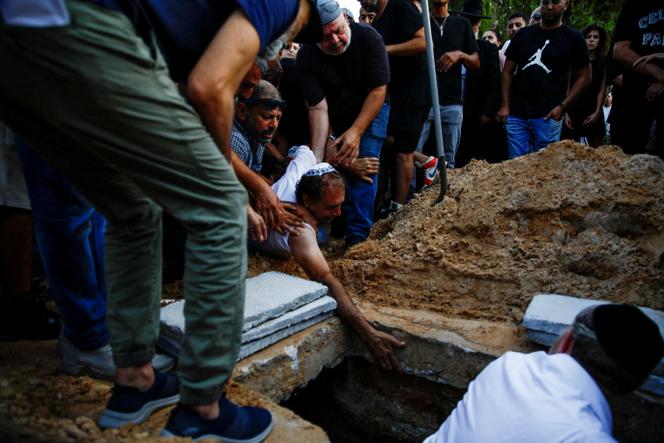


In the early evening on Sunday, September 1, on the esplanade of Jerusalem's Kaplan Street in front of the Israeli prime minister's office, supporters of the hostages held in Gaza were searching for words. They seemed so desperately lacking, unable to express the emotions they'd been feeling since the morning's announcement of the death of six Hamas captives. "You just want to scream, just scream," said 74-year-old Riki Fishel. "Since October 7, it's been the saddest, saddest day," tried to sum up Tessa Shrem, a retired English teacher.
The bodies of Carmel Gat, Hersh Goldberg-Polin, Eden Yerushalmi, Alexander Lobanov, Almog Sarusi and Ori Danino were discovered in a tunnel to Rafah, in the south of the Palestinian enclave, several dozen meters deep, as the Israeli army was conducting operations in the area. According to the autopsy data made public on Sunday by the Israeli Minister of Health, the hostages were killed "at point-blank range," – therefore executed by Hamas or those holding them – "on Thursday or early on Friday morning."
Outside Prime Minister Benjamin Netanyahu's office, the crowd was growing. There were the usual Israeli flags, hostage portraits, hissing, cries and screams, the sound system cranked up to full volume and calls for the prime minister's resignation. On that particular evening, Netanyahu was presiding over a cabinet meeting. Everyone in the crowd accused him of bearing responsibility for the deaths of the Gaza hostages, for failing to "stop the war now," as the chant goes.
After eleven months of conflict, the Israeli army's bombardments and operations have left 40,738 people dead in Gaza, according to the Hamas-controlled Ministry of Health – most of them women and minors, according to the United Nations. Some of the hostages' families accuse the Israeli government of undermining any possibility of an agreement with the Palestinian Islamist movement. The negotiation process is paralyzed by contradictory demands of Hamas and Israel, despite the mediation efforts of the United States, Qatar and Egypt. According to the Israeli army, 101 hostages remain in Gaza. A number of them – at least 30 or more – are already dead.
For over 10 months, Shrem and Fishel have been at every family support event. Tonight, they hoped, something was about to change. For the first time since October 7, 2023, the unions decided to join the protest movement. The Histadrut trade union center issued a call for a general strike beginning at 6 am on Monday. "The entire Israeli economy will shut down," the center's head, Arnon Bar-David, said on Sunday, adding, "We must stop the abandonment of the hostages."
You have 60.25% of this article left to read. The rest is for subscribers only.
